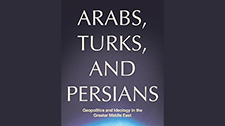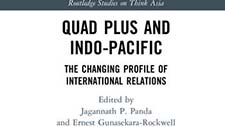-

Minilateralism and the new Indo-Pacific order: Theoretical ambitions and empirical realities
This introductory article co-authored by Jagannath Panda and Daewon Ohn sets the stage for the research essays in the special issue titled “Minilateralism and the new Indo-Pacific order: theoretical ambitions and empirical realities”. It provides an overview of the concepts of minilateralism and the context in which minilateralism has become an alternative form of collective action by states in the international arena, in particular in the Indo-Pacific region that has emerged as the new centre of gravity in world politics. How has minilateralism become a prominent feature of inter-state cooperation in the early twenty-first century, and how is it often used to complement (and in some cases, even substitute for) traditional international organisations, which are based on more liberal and inclusive multilateral norms and principles, but are suffering from functional deficits? The authors in this special issue contexualises on how minilateralism can offer states an expanded toolset for pursuing their policy preferences and advancing their interests. At the same time, the special issue also highlights the potential negatives of (or challenges to) minilateralism, including difficulties emanating from a narrowly framed agenda that perpetuates certain narratives, a leadership vacuum that could emerge from non-hierarchical arrangements, and questions about how to achieve support and legitimacy with low institutionalisation. Refer to the special issue here.
-

“Strategic Autonomy, Anyone?” Charting Europe’s Shifting Security Debates and 2024-2029 Priorities
This Special Paper by Johannes Nordin explores the evolution of the Strategic Autonomy concept—from its early development (2013-2016) and politicization (2017-2019) to its expanded interpretations and shifting engagement (2020-2024). By synthesizing these insights, it identifies key challenges and opportunities for the EU’s 2024-2029 legislative period, offering recommendations for policymakers seeking to engage constructively in future Strategic Autonomy discussions. Originally an uncontroversial term originating in the post-Cold War drive for greater EU defense capabilities and greater autonomy addressing security hotspots in Europe’s near-abroad, Strategic Autonomy has undergone significant change and contestation, argues Nordin. He further writes that the early Strategic Autonomy debates, starting in 2013, can be understood as a convergence of several immediate priorities: addressing transnational defense industry needs, easing tensions in transatlantic relations, and presenting a more pragmatic EU-centered foreign policy agenda. Download and read this special paper here.
-
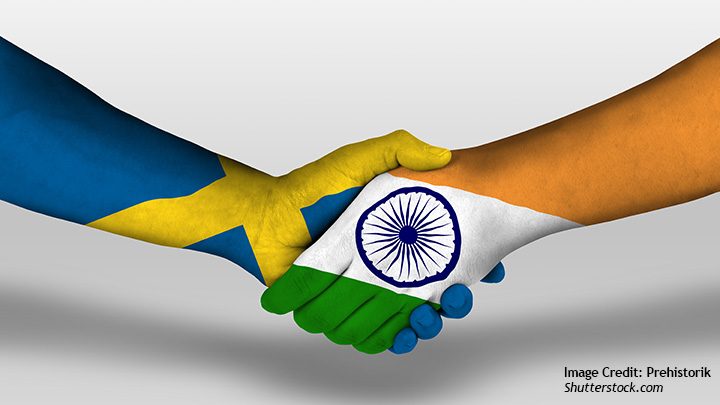
India-Sweden Strategic Compass; January-February 2025
The partnership between India and Sweden exemplifies how middle powers can forge strategic alliances in this complex environment. Their relationship has strengthened through joint initiatives in innovation, climate change, and sustainable development, demonstrating a shared commitment to key global challenges. As both nations pursue greater autonomy in their diplomatic endeavors, this partnership may further deepen, presenting a model for other countries navigating similar geopolitical complexities. This balance of autonomy and partnership may lead to new alignments and innovative collaborations that address global challenges while enhancing their respective positions on the world stage. Download and read the latest India-Sweden Strategic Compass here.
-

COP30: Time for Action on the Himalayan Region
This Focus Asia paper by Varuna Shankar and Jagannath Panda delves into the strategic necessity of CoP30 discussing the Climate conditions in the Himalaya, factoring Tibet. The paper argues that the Himalayas have faced unprecedented ecological, weather-related, and geotectonic disasters, exacerbated by human activity, disrupting ecosystems and local livelihoods. Despite these pressing issues, international climate discussions, particularly at COP29, largely marginalized the Himalayan crisis, including Tibet’s environmental degradation. Adding to this is China’s development policies that have particularly led to the current crisis situation. Beijing has pursued large-scale infrastructure projects, mining, and water diversion schemes, which threaten both the region’s ecology and downstream countries. Ongoing research mostly emphasizes the urgent need for enhanced global cooperation and a transformative approach to climate action to facilitate monitoring of the region’s environmental changes, argues Shankar and Panda. Due to its complex geography and socio-political dynamics, this has been a challenging process. However, as COP30 approaches, there is a critical need to make the Hindu Kush Himalayan region the focal point in global climate discussions. This entails integration across scientific, policy, and local knowledge to address the Himalayan region’s climate challenges, ensuring its ecosystems and communities are prioritized in global climate strategies, write Shankar and Panda. Download and read this Focus Asia paper here.
-
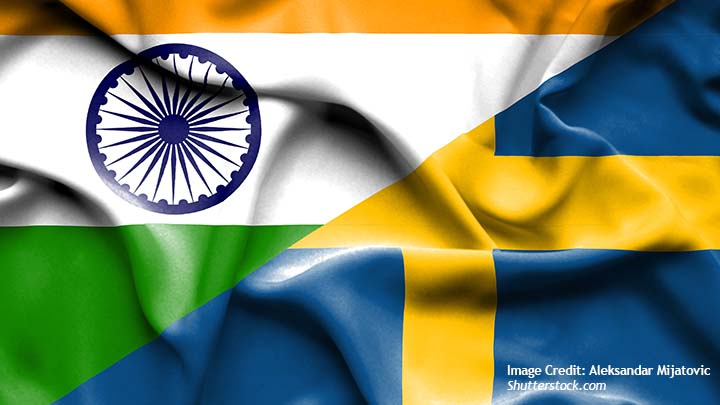
India-Nordic Budding Dynamics: Sweden, a Vital Gateway?
This issue brief, the second in a series, by Jagannath Panda, Niklas Swanström, and Mahima Duggal covers the scope and potential of India-Nordic engagement. The brief argues that Sweden’s role as a bridge and mediator between India and the Nordic countries can be understood through its strategic positioning, economic influence, and diplomatic clout within the region. Its diplomatic efforts can help align the interests of the Nordic countries with India’s strategic objectives, fostering a cohesive approach to engagement. The authors argue that Sweden’s expertise in nuclear, defense, technology, and space sectors further strengthens its role as a critical mediator and bridge between India and the Nordic countries. Through partnerships in trade and technology, naval and maritime aspects, space and land technology, and energy and electric aviation, cooperation, India and the Nordics carry the potential to forge a greater partnership that would augment the economic landscape of Eurasia. This promising alliance, anchored by Sweden and India’s joint technological expertise and manufacturing might, represents more than mere commercial opportunism—it signals a strategic realignment. In order for the alliance to be successful, there must be concerted political will from both sides as well as regular and open policy exchanges at working and high levels to resolve points of divergence and strengthen areas of convergence, write Panda, Swanström and Duggal. Download and read the policy brief here.
-
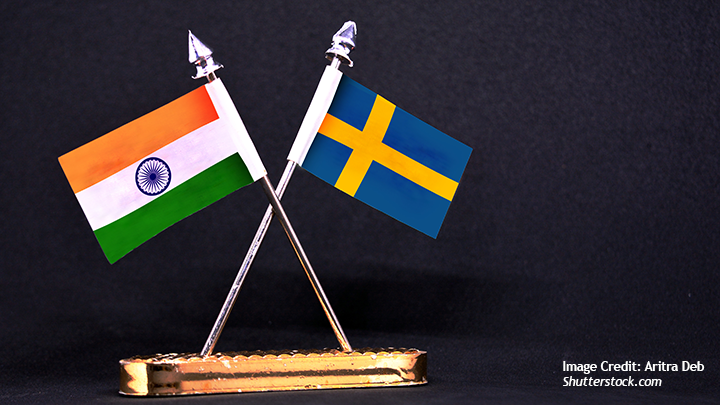
India-Sweden Ties: Forging a Cohesive Partnership
This policy brief by Jagannath Panda, Niklas Swanström, and Mahima Duggal delves into how to advance the India-Sweden partnership further. They write that looking forward, while collaborations in sustainability, innovation, and defense have grown; deeper engagement in areas like digital transformation, healthcare innovation, and advanced manufacturing could unlock new opportunities for India and Sweden. They further argue that the trade volumes between the two countries, though increasing, still do not reflect the full potential of both economies. Greater investment and technology transfer, particularly in green hydrogen and renewable energy storage, could amplify outcomes. Furthermore, stronger people-to-people connections, academic exchanges, and cultural partnerships can enhance mutual understanding, writes Panda, Swanström and Duggal. This policy brief is a part of the Stockholm Center for South Asian and Indo-Pacific Affairs collaborative project titled "India-Sweden Ties as a Gateway to India-Nordic Engagement" with the Embassy of India in Sweden. Please download and read the policy brief here.
-
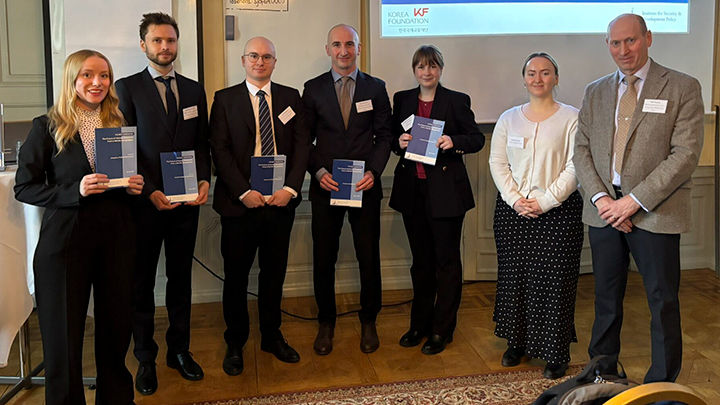
The Future of Korean Research from a Nordic Perspective
ISDP’s Korea Center had the pleasure of welcoming recently five young professionals from different Nordic nations with diverse professional backgrounds. During the Next Generation training program, the participants attended a three-day training session in Stockholm, where they received lectures from leading academics and policy analysts from the Nordics, Europe, and South Korea. Following the three-day training session, each participant was allocated a senior mentor with relevant experience in the participant’s field of research. The participants, with the support of their respective mentors, submitted policy papers reflecting their personal perspectives on the future of South Korean and/or North Korean cooperation with the Nordics and Western organizations such as the EU and NATO across numerous policy sectors, as well as concrete policy recommendations. This booklet is thus a compilation of the participants’ research and the culmination of the Next Generation Training Program. Read this special paper edited by Josephine Ørgaard Rasmussen here.
-
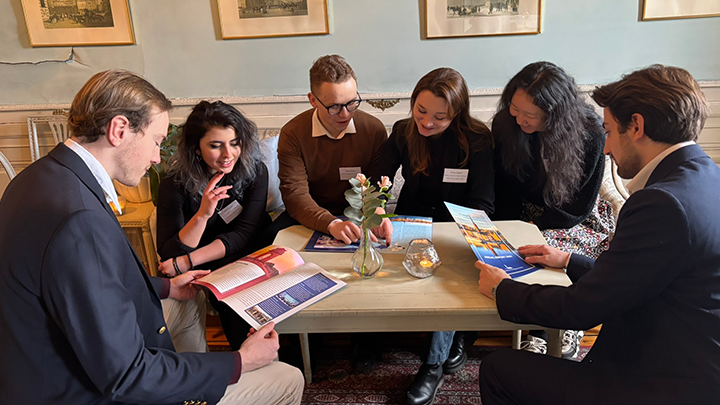
The application period for our fall 2025 internships is now open!
Are you looking for work experience in the field of international security and development? Do you have a particular interest in Asia? Now is the time to apply for our fall 2025 internships: Every semester, ISDP runs an internship program that is open to university students and recent graduates. The internship lasts between 4-6 months at the main office in Stockholm and the desired start date for the fall semester is from September. Please note that ISDP’s internships are full-time (40 hours per week) and unpaid. Specifically, we are looking for interns for our Korea Center, Center for South Asian and Indo-Pacific Affairs, and Taiwan Center, supervised by the respective Head of Center. We are also looking for an intern to work with the Asia Program more broadly, supervised by ISDP’s Executive Director. We look forward to receiving your application no later than April 21, 2025.
Latest Publications
COP30: Time for Action on the Himalayan Region
The Himalayas have faced unprecedented ecological, weather-related, and geotectonic disasters, exacerbated by human activity, disrupting ecosystems and local livelihoods. Despite these pressing issues, international climate discussions, particularly at COP29, largely […]
India-Nordic Budding Dynamics: Sweden, a Vital Gateway?
The India-Nordic summits in 2018 and 2022 had the clearly outlined goal of the expanding strategic coordination between India and the Nordics. The spike in trade reflects a healthy economic […]
Sweden and China: The Use of History and Mismatched Expectations
Sweden was not the first country in the West that recognized the People’s Republic of China, but it became the first in the West to establish formal diplomatic relations in […]



